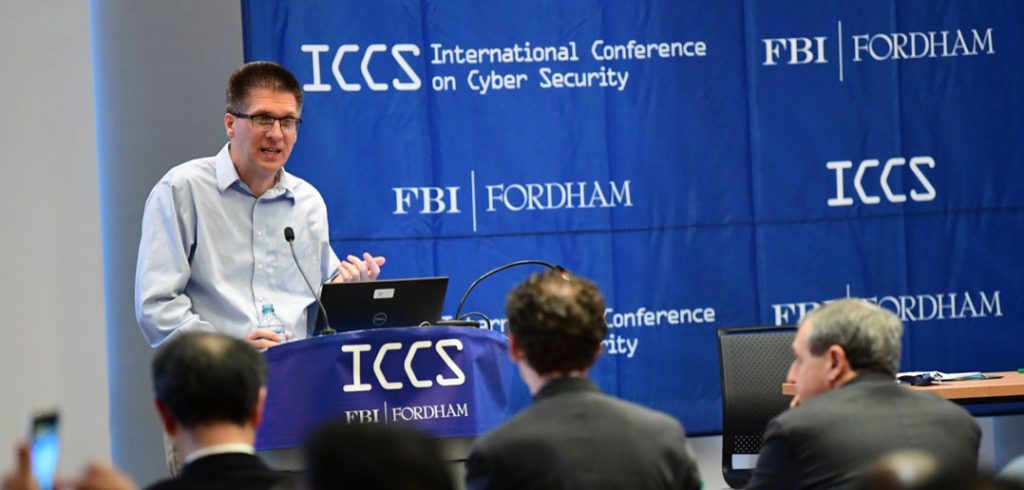“Blockchains are not the panacea. They’re not the silver bullet,” he said. “But they can be useful for certain applications.”
Mell’s lecture, “Can blockchain improve operational efficiency while enhancing trust?” explored the areas where blockchains, or append-only distributed ledgers linked by cryptography, may be useful in the future. Among them are identity management, random number production, and potential government-managed cryptocurrencies.
He spoke in depth about the possibility of managing identities using both blockchains and smart contracts, a computer protocol that helps one exchange money while avoiding the services of a middleman. In other words, a smart contract is an immutable, publicly readable, and executable code that acts as a trusted third party in transactions, he said.
“If we had such infrastructure that worked, that would be very powerful,” Mell said.
It reminded him of the time an FBI special agent visited his home and asked Mell a few questions about a person of interest. Mell asked the agent to show him proof of his identity. The agent took out a black, leather wallet. Inside that was a “metal star.”
“It looked very pretty. It looked very authentic … I answered personal questions about one of my friends to an absolute stranger because he had a metal star,” he said, to chuckles from the audience, including a few FBI special agents. “Now imagine with smart contracts … that special agent could come to me, and if I had an app on my phone and I gave him some identifier from my app, [he could]digitally prove to me that he was a special agent and authorized to be doing this kind of work.”
At the end of his 30-minute lecture, he concluded that although blockchain technology isn’t a universal remedy, it holds great potential for the future.
“If we can overcome a lot of scalability issues and assure ourselves of security issues, then we can create a smart contract infrastructure that’s scalable and secure and can be used worldwide,” Mell said.

